Saudi Arabia has long been known as a region with some serious solar potential, and over the past few years it has begun to take bigger steps toward realizing this. The SunRise Arabia event in Riyadh this week revealed the expectation that PV installations will continue to grow at an impressive rate in the years to 2030, and likely beyond that as well.
Huge demand is already being met
Speakers in the opening sessions of the conference noted that the Kingdom now has close to 8 GW of renewable energy capacity connected to its grids, and is demonstrating an appetite for a whole lot more before 2030.
Several large-scale projects have been completed, and more are on the way. Moneef Barakat, CEO of Solarabic, noted that international players have been encouraged to enter this segment by a tender mechanism that ensures stable demand, and allows them to start building quickly, with the issuing authority taking care of land acquisition and much of the other pre-development work.
There is also a nascent market for commercial and industrial (C&I) solar projects, with experts forecasting major growth beginning later in this decade. Many of those C&I project developers were in attendance at SunRise Arabia, looking to meet component suppliers and other industry players. Ahead of the event, Marcus Schrauf, CEO of developer FAS Renewables, told pv magazine that he sees no other market in the world that is likely to match the potential of Saudi Arabia.
Policy updates are needed
During discussions it also became clear that while the authorities in the Kingdom are keen to embrace solar as a major component of the energy mix, there are a few things still missing on the policy side. In particular, a net metering policy would help the C&I market to grow. Schrauf and other speakers warned that without a policy to remunerate PV system owners for power fed back into the grid, the market will be highly restricted, with fewer customers and much smaller system sizes. The removal of the current requirement that PV systems may only cover 15% of the total load on a transformer could also help to boost demand.
Residential PV in Saudi Arabia has so far seen very little development, but it was suggested that schemes such as low-cost financing for rooftop systems could help to stimulate demand here.
Elsewhere, speakers noted that low prices for fossil fuels still present a challenge to renewable energy in the region, and that the approval process for new projects also takes a long time. However, some speakers said that regulatory improvements have begun to happen, and there is plenty of optimism here.
Technology is open for discussion
The second session of the day focused on PV technologies and revealed that the debate between n-type technologies is still very much on – with both tunnel oxide passivated contact (TOPCon) and heterojunction (HJT) promising strong performance in the hot, high-irradiance environments of the Middle East.
Some questions remain over the ability of PV modules to handle this very harsh environment, with talk of new encapsulation strategies and anti-dust coatings promising solutions. A key measure here will be for the Kingdom and the wider region to develop its own quality assurance landscape – something that local players are working on, having formed the GCC Lab organization in partnership with UL. As Saudi Arabia both imports modules in large numbers, and works to establish its own manufacturing industry, quality assurance as well as new testing standards focused on simulating the desert environment will be key to ensuring that products are up to the task.
Manufacturing ambition
With local content requirements already in place – and a successful industry producing cables, glass (though so far little solar glass), and other components – there is huge ambition on show for the Kingdom to build its own manufacturing industry, beginning with polysilicon.
Popular content
Representatives from several of the largest PV manufacturers – including JinkoSolar, Trina Solar, Longi and Risen – all spoke of intent and enthusiasm to meet with local partners and work to establish a local PV supply chain, although so far there seem to be few commitments. These players also warned of the dangers of jumping into such a market without proper preparations, particularly in the current global environment of oversupply and low prices. They said that incentives, as well as guaranteed demand, will likely be needed.
In addition, the conference revealed how Saudi Arabia is already at work developing the engineering expertise and other skills that establishing such a local industry would require. Majid Refae shared details of the recently founded Saudi Polytechnic for Renewable Energy, which is working with industry to establish appropriate training and education programs to develop this workforce.
Storage will come, but hydrogen is less clear
The final session of the day focused on technologies other than PV – chiefly energy storage, green hydrogen and concentrating solar power (CSP).
On the battery side, it was noted that the flagship Neom project is already bringing large-scale energy storage to the Kingdom. Beyond this, though, low energy prices make the development of big batteries a challenge. But Kris Ignaciuk of Apricum, who moderated this session, said that “pure PV will soon be a thing of the past.” He argued that with so much large-scale PV planned, batteries will soon be a necessity to consider.
It was also noted that many regions and industrial sites in the Kingdom rely on diesel-powered microgrids for much of their energy, creating a clear opportunity for PV and battery-powered systems to step in.
Like many other parts of the world, Saudi Arabia is showing huge ambition to be a key player in a future green hydrogen economy. Although it is not yet clear how, or even if, this economy will develop, the Kingdom’s existing expertise and infrastructure for oil and gas will likely create a good starting point.
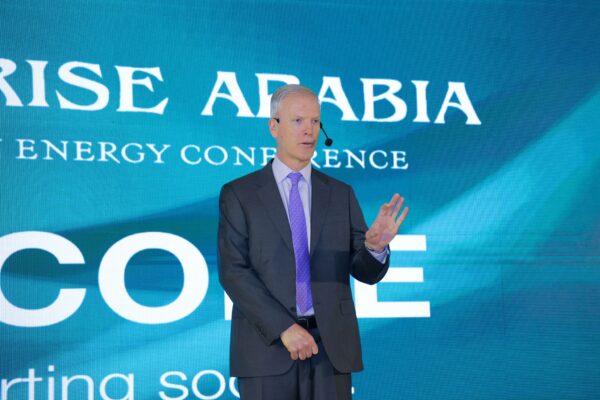
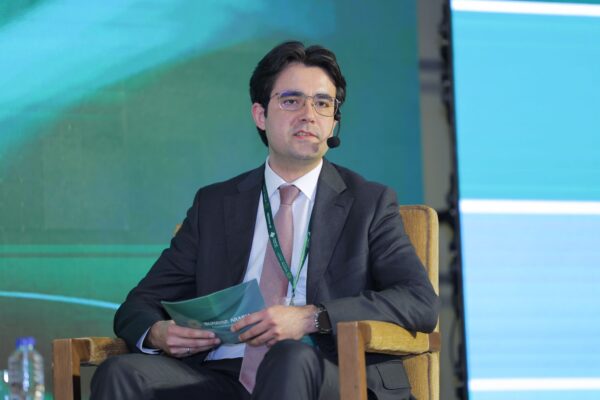
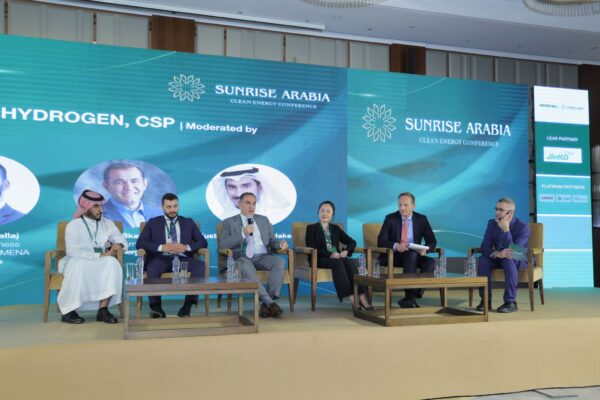

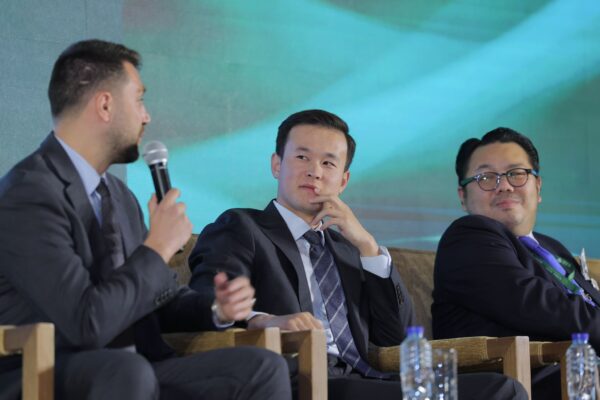
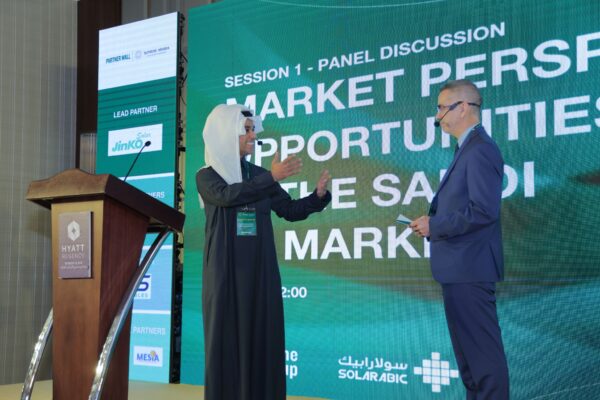
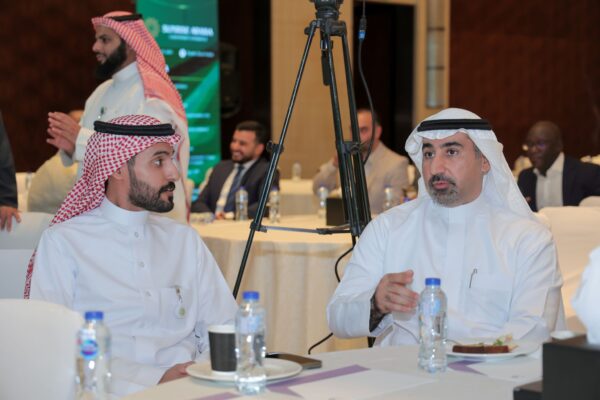
This content is protected by copyright and may not be reused. If you want to cooperate with us and would like to reuse some of our content, please contact: editors@pv-magazine.com.



3 comments
By submitting this form you agree to pv magazine using your data for the purposes of publishing your comment.
Your personal data will only be disclosed or otherwise transmitted to third parties for the purposes of spam filtering or if this is necessary for technical maintenance of the website. Any other transfer to third parties will not take place unless this is justified on the basis of applicable data protection regulations or if pv magazine is legally obliged to do so.
You may revoke this consent at any time with effect for the future, in which case your personal data will be deleted immediately. Otherwise, your data will be deleted if pv magazine has processed your request or the purpose of data storage is fulfilled.
Further information on data privacy can be found in our Data Protection Policy.